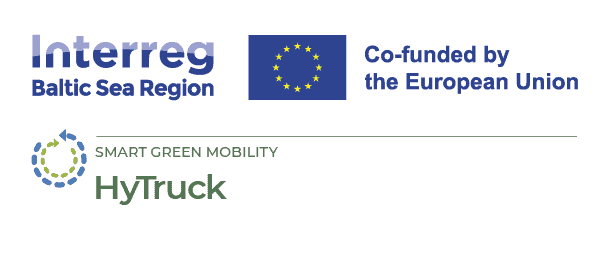Developing a transnational network of hydrogen refuelling stations for trucks (HyTruck)
International transport accounts for about a quarter (24.8%) of the total volume of road freight transport in the EU and 6% of the total EU CO2 emissions.
Large trucks, which have to cover long distances, are mostly used in international transport. Many transporters and truck manufacturers believe that battery electric vehicles are not suitable for these requirements (heavy battery weight and long charging time or short driving distances). They believe that fuel cells have advantages in this area. Fuel cell trucks require hydrogen (H2) fuel and a comprehensive network of refueling stations.
The current proposal for an EU Regulation for the deployment of alternative fuels Infrastructure (AFIR)requires EU member states to ensure that a network of hydrogen filling stations is established along the main transport routes of the TEN-T network, located no further than 150 km from each other, by the end of 2030 .
Creating such a filling network requires a coordinated system (technology, payment system, security, etc.) that can only be sensibly created through international cooperation. Standardization from the start can eliminate the incompatibility problems that e-charging stations faced in the beginning.
